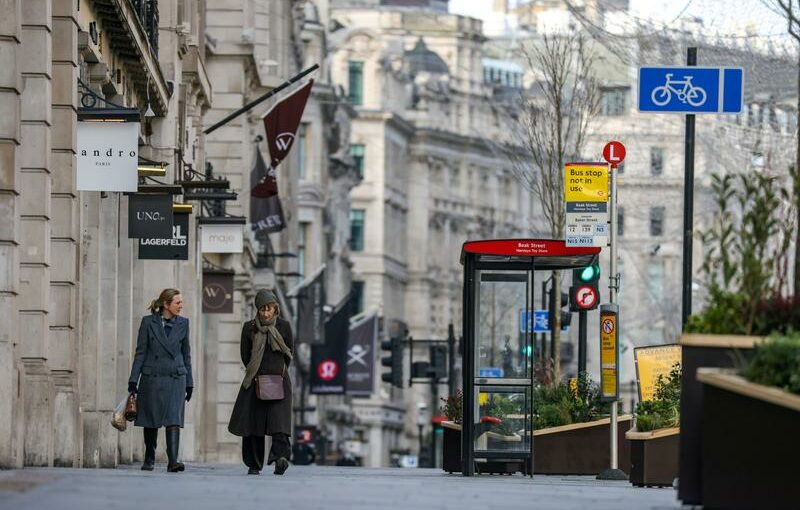LONDON (Reuters) – British Prime Minister Boris Johnson will chart England’s path out of COVID-19 lockdown on Monday in an effort to gradually reopen its battered economy, aided by one of the fastest vaccine rollouts in the world.
With more than 120,000 fatalities, Britain has suffered the world’s fifth-highest official death toll from the pandemic and its $3 trillion economy its biggest crash in more than 300 years.
But a fast start to the vaccine rollout plus a tough near-two-month national lockdown means Johnson can now set out a phased easing of the restrictions in England, prioritising the return of children to school and social mixing outdoors.
“Our decisions will be made on the latest data at every step, and we will be cautious about this approach so that we do not undo the progress we have achieved so far,” he will say, according to his office.
Lawmakers will have a chance to vote on Johnson’s plan in parliament. Authorities in Scotland, Wales and Northern Ireland, which have responsibility for their own public health decisions, are also expected to ease restrictions in the coming months.
Nadhim Zahawi, the minister in charge of the vaccine rollout, said English schools would reopen on March 8. They have been open only to vulnerable pupils and to key workers’ children since Jan. 5, with all others studying at home.
Zahawi also said on LBC Radio that two people from separate households would be allowed to meet outdoors from March 8, while from March 29 outdoor socialising would be permitted for groups of six people maximum, or for two households together. Outdoor sports will also be allowed to resume from March 29, he said.
Related Coverage
See more stories
SPEEDY VACCINE ROLLOUT
Under pressure on one side from politicians in his ruling Conservative Party eager to restart the economy, and on the other from scientific advisers who fear a resurgence of the virus if he unlocks too quickly, Johnson faces tough choices.
He has appeared much more cautious in recent months than he did earlier on in the pandemic.
Health minister Matt Hancock said on Sunday that after each step to ease restrictions, there would be a pause of a couple of weeks to assess the impact on the wider population before any further relaxation was implemented.
Johnson is expected to set out four criteria to be considered before each new step is taken, including the speed and success of the inoculation programme, the state of infection rates and the impact of any new variants of the virus.
Britain moved faster than many other Western countries to secure vaccine supplies and has been inoculating people rapidly since December, a strategy that has driven sterling and stock markets higher on hopes of an economic rebound.
Some 17.6 million people, over a quarter of the 67 million population, have now received a first dose, behind only Israel and the United Arab Emirates in vaccines per head of population. The government aims to give a first dose to all adults by the end of July.
Hancock also said Britain had recently succeeded in driving down cases of the more infectious South African variant. Overall daily coronavirus cases hovered around 11,000 a day last week, compared with a high of over 80,000 in late December.
Source: Read Full Article
